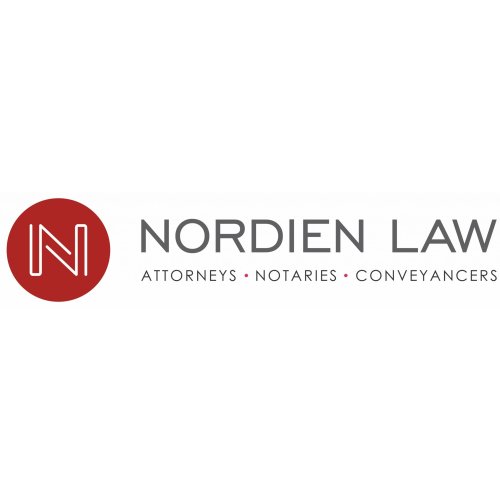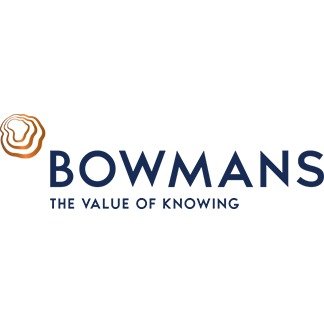Best Equity Capital Markets Lawyers in Cape Town
Share your needs with us, get contacted by law firms.
Free. Takes 2 min.
List of the best lawyers in Cape Town, South Africa
About Equity Capital Markets Law in Cape Town, South Africa
Equity Capital Markets (ECM) law in Cape Town refers to the legal framework that governs the raising of capital through public or private sales of equity shares in South African companies. As a financial hub, Cape Town sees significant activity on the Johannesburg Stock Exchange (JSE), with many local and international businesses choosing to conduct their equity offerings from the city. This area of law encompasses initial public offerings (IPOs), secondary offerings, rights issues, private placements, and regulatory compliance associated with such transactions. Lawyers working in this sector advise on matters ranging from structuring deals and preparing disclosure documentation to ensuring continuous legal compliance for listed entities.
Why You May Need a Lawyer
Individuals and companies involved in Equity Capital Markets may require legal assistance for several reasons. Common situations include:
- Advising on and structuring equity offerings, such as IPOs or rights issues
- Preparing and reviewing legal documentation required for listings on the JSE or other trading platforms
- Ensuring compliance with South African securities, exchange control, and company laws
- Assisting with Mergers and Acquisitions (M&A) involving share issuances
- Navigating regulatory processes with the Financial Sector Conduct Authority (FSCA) or other bodies
- Managing legal due diligence and disclosure obligations
- Resolving disputes related to shareholder rights or market transactions
- Advising on cross-border transactions and foreign investment regulations
Working with an experienced ECM lawyer ensures your transactions are legally robust and helps avoid costly regulatory missteps.
Local Laws Overview
Equity Capital Markets in Cape Town operate within the broader South African legal context. The following key laws and regulations are particularly relevant:
- Companies Act of 2008 - Governs the incorporation, operation, and share issuances of South African companies
- Financial Markets Act of 2012 - Regulates trading venues and intermediaries, including the JSE
- JSE Listings Requirements - Outlines the specific standards and obligations for listing securities on the Johannesburg Stock Exchange
- Financial Sector Regulation Act - Establishes the framework for oversight by the Financial Sector Conduct Authority (FSCA)
- Exchange Control Regulations - Monitored by the South African Reserve Bank, relevant to the movement of funds in and out of South Africa
- Tax Laws - The Income Tax Act and related statutes affect capital gains and share-based transactions
Cape Town-based businesses and investors must also consider local municipal requirements, especially where business premises or infrastructure are concerned. Compliance with these laws is vital for smooth and successful equity market participation.
Frequently Asked Questions
What is an Initial Public Offering (IPO)?
An IPO is the process where a private company offers its shares to the public for the first time, usually to be listed on a stock exchange like the JSE. This process enables companies to raise capital from a broader investor base.
What is the role of the JSE in Equity Capital Markets?
The Johannesburg Stock Exchange regulates the listing and ongoing obligations of companies with publicly traded shares. It sets stringent requirements to ensure transparency, fair trading, and investor protection.
Can foreign companies list on the JSE?
Yes, foreign companies can list on the JSE, provided they meet the exchange's requirements and comply with relevant South African laws, including exchange control regulations.
What is the difference between a public offer and a private placement?
A public offer involves offering shares to the general public, subject to detailed disclosure and compliance requirements. A private placement is a targeted offering to specific investors and may not require the same level of disclosure.
What are the disclosure obligations of a listed company?
Listed companies must disclose all material information that could affect share prices, including financial results, changes in the board, and significant transactions. This ensures investor confidence and market integrity.
How can investors protect themselves in ECM transactions?
Investors should conduct thorough due diligence, understand the company's disclosures, and seek legal advice before making investments. They should also be aware of their rights under South African securities laws.
Are there restrictions on foreign investors buying South African shares?
Foreign investors can generally purchase South African shares, though certain transactions may require compliance with exchange control regulations administered by the South African Reserve Bank.
Do ECM deals attract taxes?
Yes, share transactions may be subject to various taxes, including Securities Transfer Tax, Capital Gains Tax, and company income taxes, depending on the nature of the transaction.
What is a prospectus, and when is it required?
A prospectus is a formal legal document disclosing essential information about a share offering. It is required when shares are offered to the public unless a specific exemption applies.
What legal risks are associated with ECM transactions?
Key risks include non-compliance fines, regulatory investigations, disputes with shareholders, and transaction failures due to improper due diligence or lack of transparency.
Additional Resources
Individuals or companies looking for further information or assistance in Equity Capital Markets may find the following resources valuable:
- Financial Sector Conduct Authority (FSCA) - Regulatory body overseeing financial markets
- Johannesburg Stock Exchange (JSE) - Offers guidelines, rules, and market data
- South African Reserve Bank - For exchange control regulations
- South African Institute of Chartered Accountants - Useful for accounting guidance in ECM transactions
- Legal Practice Council of South Africa - Register of accredited law firms and practitioners
You may also consult Cape Town-based business incubators, chambers of commerce, or specialist financial advisers for further guidance.
Next Steps
If you need legal assistance in Equity Capital Markets in Cape Town, start by identifying your specific needs, such as facilitating an IPO, private placement, or ensuring compliance with local regulations. Research and approach law firms or legal professionals that specialize in ECM and have experience working with the JSE and South African regulatory bodies. Prepare relevant documents and information about your business or investment goals before your consultation. During your meeting, discuss the scope of services, fees, and timelines, and make sure the lawyer you choose has a strong understanding of both local and international aspects of Equity Capital Markets transactions. By securing professional legal advice, you can help ensure your equity transactions are efficient, compliant, and tailored to your objectives in the Cape Town market.
Lawzana helps you find the best lawyers and law firms in Cape Town through a curated and pre-screened list of qualified legal professionals. Our platform offers rankings and detailed profiles of attorneys and law firms, allowing you to compare based on practice areas, including Equity Capital Markets, experience, and client feedback.
Each profile includes a description of the firm's areas of practice, client reviews, team members and partners, year of establishment, spoken languages, office locations, contact information, social media presence, and any published articles or resources. Most firms on our platform speak English and are experienced in both local and international legal matters.
Get a quote from top-rated law firms in Cape Town, South Africa — quickly, securely, and without unnecessary hassle.
Disclaimer:
The information provided on this page is for general informational purposes only and does not constitute legal advice. While we strive to ensure the accuracy and relevance of the content, legal information may change over time, and interpretations of the law can vary. You should always consult with a qualified legal professional for advice specific to your situation.
We disclaim all liability for actions taken or not taken based on the content of this page. If you believe any information is incorrect or outdated, please contact us, and we will review and update it where appropriate.















